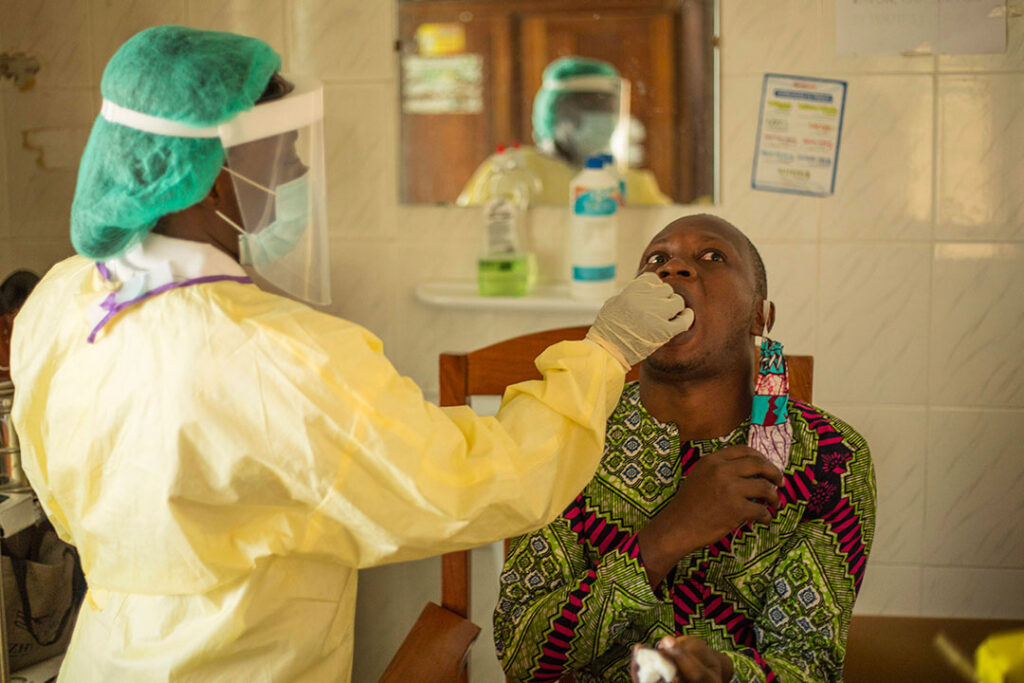ADF STAFF
The United States, working through U.S. Africa Command (AFRICOM), has donated $60,000 in equipment and supplies to help the government of Benin fight the spread of COVID-19 by establishing two new diagnostic laboratories.
The new labs are in the northern community of Kandi and in Lokossa in the southwest near the border with Togo. The funding adds to more than $4.5 million the U.S. has contributed, through United States Agency for International Development, since April 2020 to treat COVID-19 in the West African nation.
The funding helps prevent and control infection, boost health screening capacity, communicate risk and responsibilities to the public, and coordinate national and regional response efforts.
Benin has seen a sharp rise in COVID-19 infections since mid-June, about two weeks after the government reopened religious sites, restaurants and public transportation across the country.
In mid-June the country reported 400 cases — double its reported number three weeks earlier. Two weeks later, Benin’s COVID-19 cases had tripled to about 1,200, and 21 people had died as of June 30. Among the deaths, people with a history of diabetes, high blood pressure and sickle cell disease were the most numerous, according to the Ministry of Health.
Although the overall numbers are low compared to neighboring countries such as Nigeria and Ghana, the rapid growth is straining hospitals in three departments in the south of the country, including its largest city, Cotonou.
Soon after Benin confirmed its first COVID-19 case on March 16, the government launched a variety of digital tools to combat the spread of the disease and misinformation about it.
The digital strategy included radio announcements in 15 local languages, awareness videos and statements across social networks. An interactive WhatsApp messaging system helps communicate directly with citizens in Benin and with those abroad.
“The big challenge for us is that we cannot reach certain sections of the population who do not have internet access or who are illiterate,” Beninese social media expert Stévy Wallace told the World Health Organization’s African regional office. “So we need each internet user to pass on the correct information in their homes, their neighborhood, their community. The cause must be a common one.”
Taking that message to heart, Beninese activists launched an anti-COVID-19 information campaign — “Stop COVID 2019” — in Lokossa on April 4. About 50 volunteers with the Home for the Sick, Orphans, and Widows (MAMOV) distributed Department of Health flyers across the city to alert the community about dangers posed by the virus.
“Today there were many people, more than fifty,” Dr. Souroun Samson Ahissa, a MAMOV member, told Pacifique TV at the time. “We want to educate our brothers. We don’t want people to be sick; we want to warn them.”

